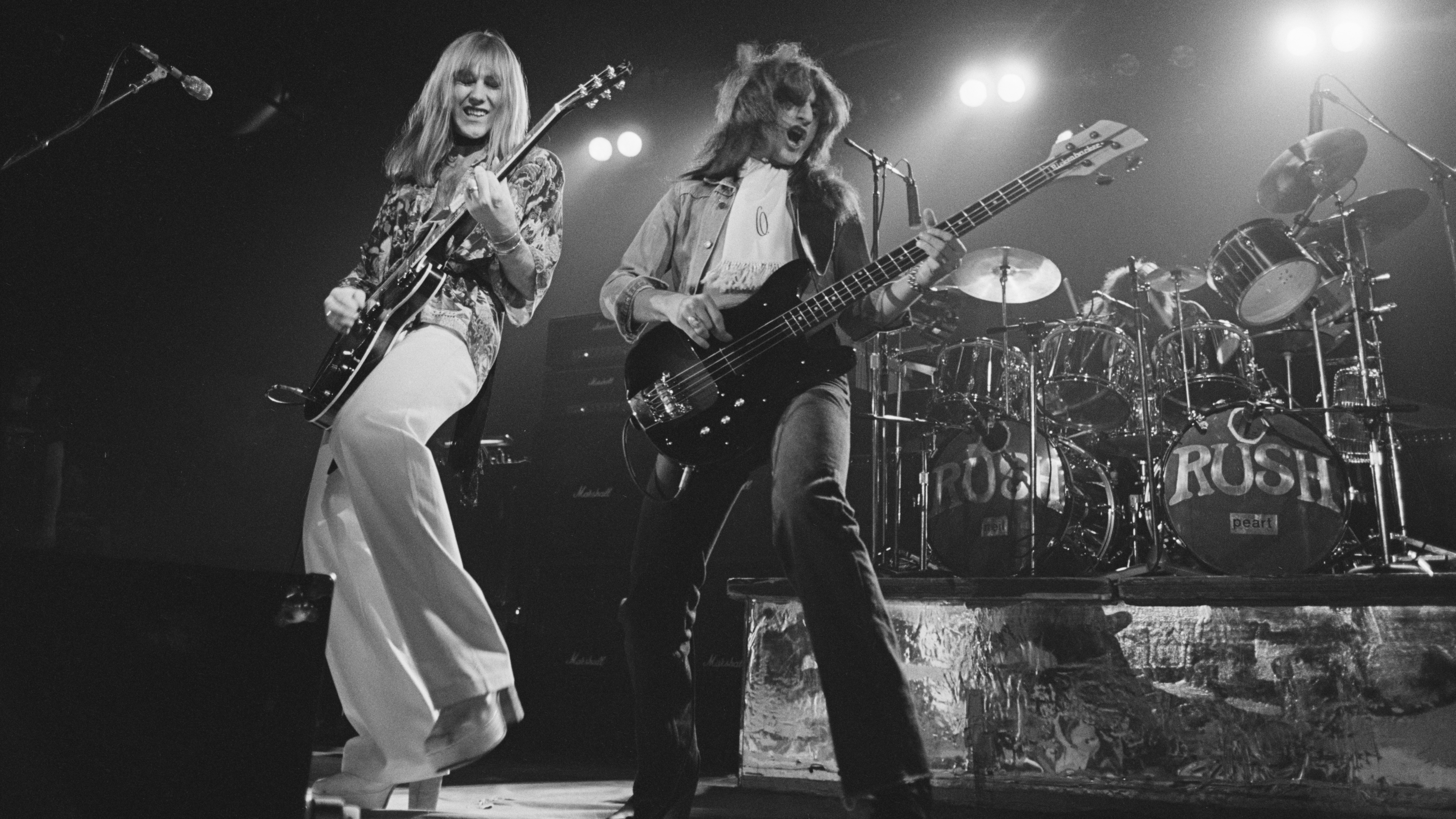Love it or loathe it, prog polarises opinion like no other type of rock music.
Rooted in the psychedelic late 60s, prog built up a real head of steam in the early 70s as rock musicians freed themselves of the limitations of four-minute songs and standard time signatures and revelled in the freedom to stretch out a single track over a whole side of vinyl, draw on unlimited musical sources and create music in more complex, and sometimes staggering time signatures. The results could range from the dizzy heights to the gruesome depths. Case in point, Yes went from the triumph of Close To The Edge to the nadir of Tales From Topographic Oceans in just 16 short months.
And while there’s still plenty of new progressive music out there, the 70s are truly the first step of the genre’s journey. So, with epic songs, intricate harmonies and psychedelic album design aplenty, we take you through the decade’s highlights.
JETHRO TULL - Aqualung (Island, 1971)
The definitive Jethro Tull album. One of Tull’s strengths was their constant musical evolution, aided and abetted by a bewildering, ever-changing cast of musicians alongside leader Ian Anderson and his long-time lieutenant guitarist Martin Barre. The title track and Locomotive Breath are among the most celebrated and heavy tracks in Tull’s enormous repertoire, with acoustic tracks like Mother Goose providing the light relief.
YES - Close To The Edge (Atlantic, 1972)
Yes’s final album with Bill Bruford suggests that the drummer’s timing was impeccable in every sense, striking out for King Crimson just as Yes reached their peak with this fifth album. Best known for its sprawling title track, Close… also features two other Yes staples, And You And I and Siberian Khatru. Jon Anderson’s lyrics are of course utter nonsense but the music is sublime from start to finish. Don’t be put off by artist Roger Dean’s uncharacteristically dull cover – inside lurks one of the most enduring 70s prog albums. Despite 1974’s worthy Relayer, Yes would never recapture this sort of form again.
PINK FLOYD - The Dark Side Of The Moon (Capitol, 1973)
Belying the myth that prog is a minority interest, Pink Floyd’s monumental The Dark Side Of The Moon has sold in excess of 35 million copies since its release. Packaged in Storm Thorgerson’s iconic artwork, Dark Side… was recorded over seven months at Abbey Road in London. Containing a host of key Floyd tracks, including Time and Money, this was a (slightly) more democratic Floyd than would later emerge under bassist/vocalist Roger Waters. Prog aficionado or not, Dark Side… is the soundtrack of a generation.
EMERSON LAKE & PALMER - Brain Salad Surgery (Castle Music, 1973)
‘Welcome back my friends to the show that never ends…’ Containing the monumental Karn Evil 9 suite alongside their marvellous adaptation (or mauling, depending on your point of view) of the hymn Jerusalem, ELP’s fifth album Brain Salad Surgery is their most consistent studio release. There was always a power struggle within ELP, and after Works Volume 1 provided Keith Emerson and Greg Lake along with Carl Palmer a side of vinyl each, the writing for the band was very much on the wall.
GENESIS - The Lamb Lies Down On Broadway (Virgin, 1974)
In which some public school boys, plus a chap on drums called Phil Collins, created a concept album tour de force. And no self-respecting prog band should be without at least one fully fledged concept album in their armoury. With The Lamb Lies Down On Broadway, Genesis wisely chose to eschew the dungeons and dragons, swords and sorcery nonsense that blights so many prog concepts. Instead, singer Peter Gabriel’s vivid imagination conjured up an unsettling vision involving a young man called Rael who undergoes a weird transformation among a cast of oddball characters who wouldn’t look out of place among the pages of a Lewis Carroll novel.
- Jethro Tull - Aqualung 40th Anniversary Adapted Edition Album Review
- The 11 best Rush album covers by band Art Director, Hugh Syme
- Supertramp: The Brits who outsold The Clash two to one in the USA
- The Prog Interview: Steve Howe on Chris Squire and The Future Of Yes
- The most valuable EPs of the 70s
KING CRIMSON - Red (EG, 1974)
Having announced themselves in fine fashion with In The Court Of The Crimson King, Robert Fripp’s King Crimson would continue to enthrall lovers of more complex, challenging prog for half of the next decade. One of Crimson’s enduring features was that their only constant was change. With their ever mutating line-up and sound, Red showcased the formidable trio of Fripp, bassist/vocalist John Wetton and ex-Yes drummer Bill Bruford. The music is by turns beautiful and utterly brutal. Starless remains as haunting now as on its release, with Wetton’s commanding voice at its finest.
SUPERTRAMP - Crime Of The Century (A&M, 1974)
Supertramp are a stark contrast to most of the 70s prog bands featured here. Far more orientated towards the mainstream than their peers and later with a successful propensity for crossing over into pop rock waters, Supertramp brought plenty of jazz influences to their music. With Roger Hodgson’s high-pitched vocals contrasting with Rick Davies’ lower register and John Helliwell’s saxophone given a prominent role, Supertramp were a very different proposition to the likes of Yes, Genesis, etc. Crime… features long-time ‘Tramp favourites including the infectious Bloody Well Right and the stirring Asylum.
KANSAS - Leftoverture (Kirshner, 1976)
By some distance Kansas were the finest of the American prog bands. Having rapidly released three frustratingly inconsistent albums, their fourth, the punsome Leftoverture, caught light with the marvellous Carry On Wayward Son. From its glorious acapella opening to the crunching guitar riff and stunning instrumental interplay, this is the Kansas rocker par excellence, complete with Steve Walsh’s crystal clear vocals. Elsewhere The Wall’s glorious, soaring guitar, the epic Magnum Opus and Cheyenne Anthem make this the most compelling 70s US prog album.
RUSH - 2112 (Mercury, 1976)
Originally heavily influenced by Led Zep and Cream, Canadian trio Rush gained momentum when they recruited drummer extraordinaire Neil Peart for their second album. After some promising earlier works, 2112 is Rush’s crucial 70s album. With a whole side of vinyl devoted to the wondrous seven-part title track – complete with the ‘We have assumed control…’ grand finale – the five shorter tracks, A Passage To Bangkok, The Twilight Zone, provided a neat contrast. The production of 2112 may sound a little dated now, but live still retains all of its original power.
UK - UK (EG, 1978)
Already proven as a compatible rhythm section as part of King Crimson, bassist/vocalist John Wetton and drummer Bill Bruford formed an unlikely quartet with guitarist Allan Holdsworth and keyboardist/violinist Eddie Jobson to create UK. The result was one of the decade’s most distinctive prog albums with some superb ensemble playing. Wetton’s bass is at its adventurous best, and Jobson’s otherworldly violin is like nothing else heard in the 70s. In The Dead Of Night is a moody 13-minute suite, while shorter pieces such as Time To Kill and the wonderful jazz fusion of Nevermore provide more instant gratification.
For more 70s Prog and how to kick start your King Crimson collection, then click on the link below.

